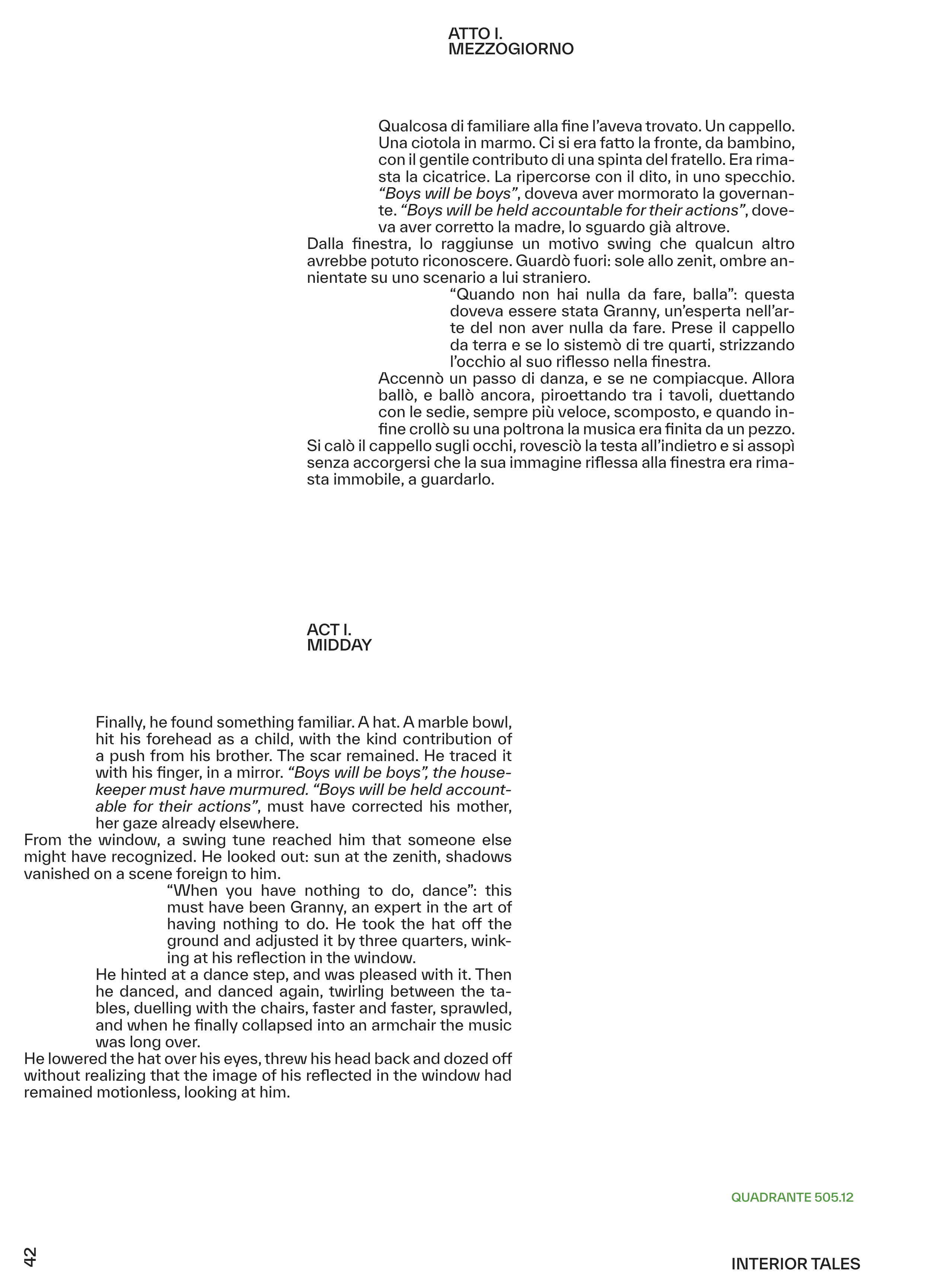42
INTERIOR TALES
Qualcosa di familiare alla fine l’aveva trovato. Un cappello.
Una ciotola in marmo. Ci si era fatto la fronte, da bambino,
con il gentile contributo di una spinta del fratello. Era rima-
sta la cicatrice. La ripercorse con il dito, in uno specchio.
“Boys will be boys”, doveva aver mormorato la governan-
te. “Boys will be held accountable for their actions”, dove-
va aver corretto la madre, lo sguardo già altrove.
Dalla finestra, lo raggiunse un motivo swing che qualcun altro
avrebbe potuto riconoscere. Guardò fuori: sole allo zenit, ombre an-
nientate su uno scenario a lui straniero.
“Quando non hai nulla da fare, balla”: questa
doveva essere stata Granny, un’esperta nell’ar-
te del non aver nulla da fare. Prese il cappello
da terra e se lo sistemò di tre quarti, strizzando
l’occhio al suo riflesso nella finestra.
Accennò un passo di danza, e se ne compiacque. Allora
ballò, e ballò ancora, piroettando tra i tavoli, duettando
con le sedie, sempre più veloce, scomposto, e quando in-
fine crollò su una poltrona la musica era finita da un pezzo.
Si calò il cappello sugli occhi, rovesciò la testa all’indietro e si assopì
senza accorgersi che la sua immagine riflessa alla finestra era rima-
sta immobile, a guardarlo.
QUADRANTE 505.12
Finally, he found something familiar. A hat. A marble bowl,
hit his forehead as a child, with the kind contribution of
a push from his brother. The scar remained. He traced it
with his finger, in a mirror. “Boys will be boys”, the house-
keeper must have murmured. “Boys will be held account-
able for their actions”, must have corrected his mother,
her gaze already elsewhere.
From the window, a swing tune reached him that someone else
might have recognized. He looked out: sun at the zenith, shadows
vanished on a scene foreign to him.
“When you have nothing to do, dance”: this
must have been Granny, an expert in the art of
having nothing to do. He took the hat off the
ground and adjusted it by three quarters, wink-
ing at his reflection in the window.
He hinted at a dance step, and was pleased with it. Then
he danced, and danced again, twirling between the ta-
bles, duelling with the chairs, faster and faster, sprawled,
and when he finally collapsed into an armchair the music
was long over.
He lowered the hat over his eyes, threw his head back and dozed off
without realizing that the image of his reflected in the window had
remained motionless, looking at him.
ATTO I.
MEZZOGIORNO
ACT I.
MIDDAY


